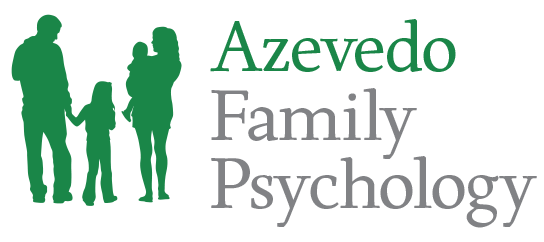
Toxic Masculinity, Anger, and Mental Health
March 1, 2018
Dr. Azevedo Speaks to WRAL on Teen Suicide
May 9, 2018Humans are logical creatures: we are separate from other animals in our ability to think rationally, self-conceptualize, and learn new behaviors. It is curious, then, that in matters of the heart we are so often illogical, staying in or even seeking out relationships that we know will hurt us.
It’s a strange and dangerous quirk of humanity, and it’s one that psychologists have tried to understand for a long time! Today we will look at this behavior – called the repetition compulsion – in an attempt to understand and rise above it.
The Mechanics of Trauma
The repetition compulsion is not exclusive to romantic relationships. It is a natural human behavior that compels us to repeat past trauma. The term was coined by Freud, who defined it as “the desire to return to an earlier state of things.” For most of us, that “earlier state” is easily recognized in our childhood memories.
To understand why this makes sense, it is important to define trauma accurately. Trauma is not always a single, defining event: a car crash, the death of a loved one. It can be a series of learned behaviors or a pattern of negative influence. For a child, this could be growing up with an overly demanding parent, or having to take care of their siblings, or any other consistent behavioral pattern.
The issue with this trauma is that we unconsciously view it as normal. This can be confusing at first because we may also recognize it as bad or unhealthy; this is why many people enter negative relationships they would normally advise others against. They unconsciously seek to relive that situation, but with a new participant: their partner.
Breaking the Cycle
Like most negative behaviors, the first step towards ending bad relationship patterns is recognizing your issue. This acceptance paves the way towards recovery and positive change.
Though traditional psychotherapy is helpful for understanding the root causes, cognitive behavioral therapy can help change the behaviors associated with the trauma. It seeks to understand the connection between negative thoughts and harmful actions.
One way this could manifest in relationships is in the instinct to “change” or help a person. For instance, if you had to take care of siblings in your youth, you may feel the need to do the same for a partner. Except unlike your siblings, that partner may be abusive, ungrateful, or immature. CBT focuses on recognizing that need to be the caretaker, and changing your resulting actions. This is an oversimplification – and only one example – but may help explain how CBT can help.
Do you want to end your cycle of negative and unhealthy relationships? Azevedo Family Psychology offers psychotherapy and cognitive behavioral therapy to individuals in the Cary area of North Carolina. Contact us today, and let’s create a life worth celebrating!




